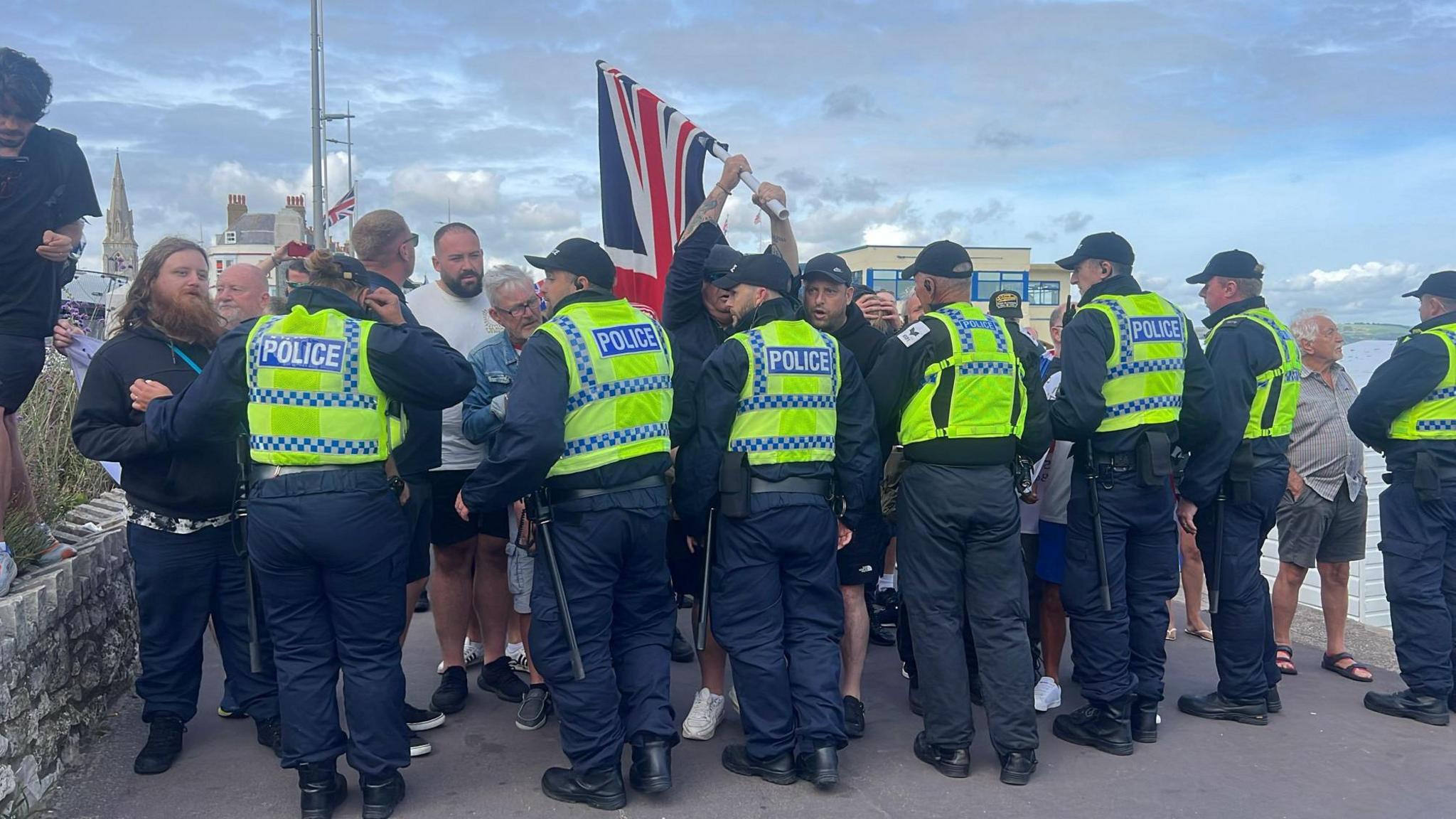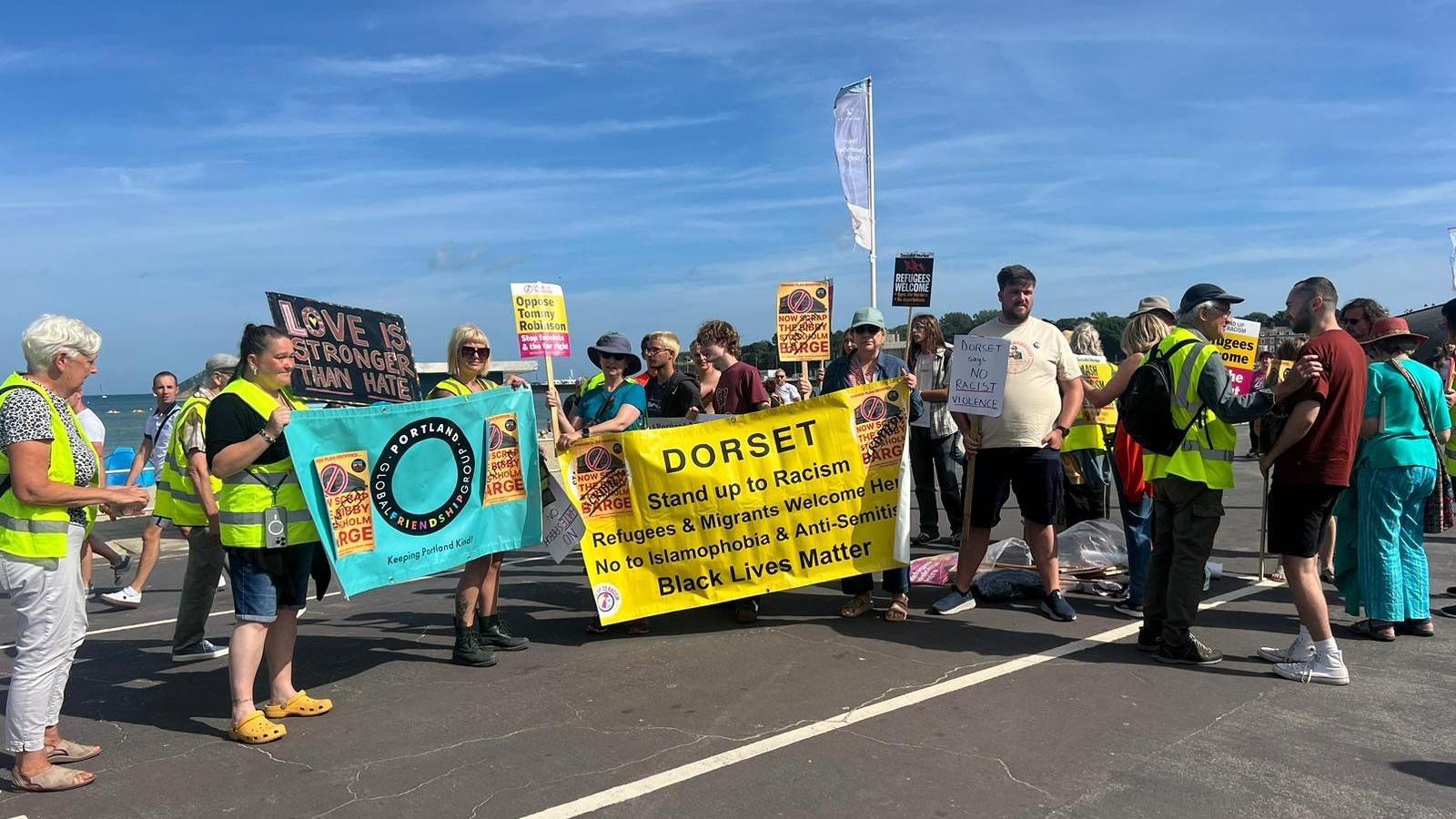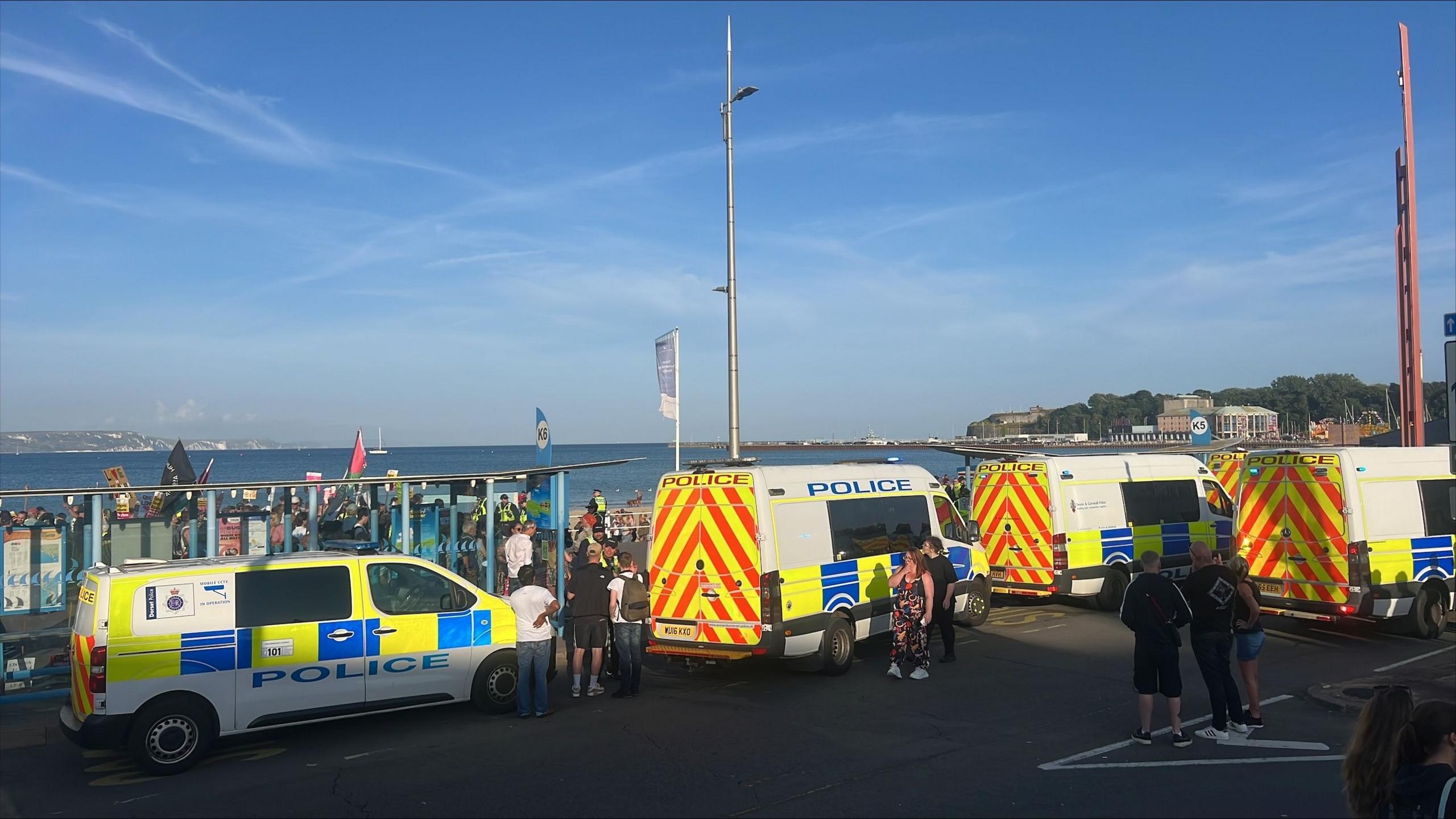Man arrested as protest groups separated by police

Police were keeping the two groups separated
- Published
A man has been arrested after about 600 protesters from opposing sides gathered on the seafront in Dorset.
Some 200 Stand Up to Racism demonstrators were on a different part of the Weymouth Esplanade than a larger group of about 400 anti-immigration protesters on Sunday.
Around 30 officers from Dorset and the neighbouring counties of Devon and Cornwall were managing the two groups.
Assistant Chief Constable Mark Callaghan said there had been a "small number of low-level incidents", with one man arrested for a public order offence.
"This type of behaviour is not acceptable within our communities," he said.
Both sides were chanting at one another, with one shouting “save our streets” and the other “shame on you”.
Police built a physical wall, using themselves and about five riot vans to stop the two groups meeting on the road and the esplanade.
The anti-immigration group had been slowly moving towards Stand up to Racism Dorset, which officers were trying to stop.

The protesters gathered on Weymouth Esplanade
Shortly before 19:30 BST, buses and cars that were at a standstill had moved on, with the road fully open around the King’s Statue.
Mr Callaghan said he wanted to reassure residents and visitors that the demonstrations were well resourced with a strong police presence, "including dog units, police liaison officers and evidence gathering teams".
He said: "The majority of people are behaving within the law and I would like to thank them for their conduct.
"Officers will seek to de-escalate disorder as quickly as possible and we will not hesitate to take necessary action against anyone who deliberately chooses to act outside the law."
Earlier, one side had been chanting "Tommy Robinson", waving Union Jack flags and holding signs that read "I [love] my country".
The other group were chanting "Weymouth and Portland welcome refugees" and carrying placards reading "Nazis go home".

Around 30 police from Dorset and the neighbouring counties of Devon and Cornwall were managing the groups
Officers were keeping people off the beach because some anti-immigration protesters pushed through the police line and ran up the seafront.
Ahead of the protests, Mr Callaghan said the force had liaised with protest organisers to "ensure people can exercise their right to protest legally and safely".
He said: "We will seek to enable peaceful protests but, let me be clear, if people are intent on committing public order or criminal offences, they will be dealt with robustly as such behaviours will not be tolerated."
He said Dorset Police had increased resourcing for the demonstrations.
The Weymouth protests are the latest in a number of protests in towns and cities across England since the killing of three young girls in Southport, Merseyside, on Monday.
Axel Rudakubana, 17, who was born in Cardiff, appeared at Liverpool Crown Court earlier this week and was charged with murdering the three girls.
He was also charged with 10 counts of attempted murder after eight other children and two adults were seriously injured in the attack.
He was remanded into youth detention accommodation.
Prime Minister Keir Starmer has condemned what he called "far-right thuggery" in the form of violent demonstrations.
Speaking to reporters at Downing Street, he said those involved would feel the "full force of the law".
Analysis - Sophie Cridland, BBC South reporter, in Weymouth
There have been tensions over immigration here in Weymouth since April last year, when it was announced that the Bibby Stockholm barge would house asylum seekers waiting for their applications to be processed.
That caused a divide in the community and two groups formed - but both opposed the barge that is now berthed at Portland Port.
One saying they did not feel safe with around 500 foreign men, aged 18 - 65, being brought in to the community.
The other group felt it was inhumane to house people on a barge that they say is similar to a prison.
It has been protest after protest here since summer last year, with both groups clashing, so today is nothing different for the community of Weymouth and Portland.
Follow BBC South on Facebook, external, X (Twitter), external, or Instagram, external. Send your story ideas to south.newsonline@bbc.co.uk, external or via WhatsApp on 0808 100 2240, external.